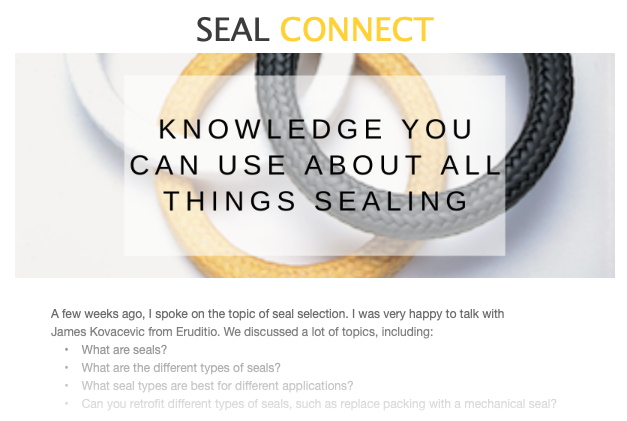How To Prolong Bearing Life with Clean Lubrication Practices
As you likely know, there are many factors that can affect bearing life, which ultimately affect systems reliability in processing plants. Some such factors include:
- Design
- Quality
- Storage and handling
- Installation and proper alignment
- Lubrication
Why Does Bearing Failure Occur?

Recent studies have shown that most bearing failures were caused by contamination within the bearing housing. This includes more than half that were caused by contaminants (aka water and particles) mixing with the lubricant.
But if you filter your new oil and ensure clean oil is in your equipment, how does it get contaminated? And, more importantly, why should plant teams care about this commonplace contamination?
SEPCO’S Chris Tindell answered this critical question in an article for processingmagazine.com.
Why Should Teams Prioritize Bearing Protection?
According to the article, bearing failure can cost industries billions of dollars every year.
“With replacement parts, ancillary equipment failures, downtime, wasted product and labor hours, these costs may often be higher than calculated by plant teams,” Tindell explained.
How Does Lubrication Contamination Occur?
To embark and remain on the path to lubrication reliability, plant teams much complete the following when it comes to lubrication operations:
- Select the ideal lubricant for the asset
- Choose the correct storage and handling methods for the lubricant
- Select the right amount of lubricant for the asset it’s being applied to
- Ensure the correct lubricant is in the intended asset
- Select the correct time in which to replace the lubricant
If teams follow all these steps, the lubricant may operate reliably for years. So, why do most plants and facilities encounter problems? Somewhere along the way, something goes wrong. It is often within the bearing housing itself.
So, What’s the Solution?
According to Tindell’s article, despite lip seals and other contacting oil seals having faults or wear that allow contamination to enter the lubricant, oftentimes a noncontact bearing isolator — particularly one that expels contaminants and seals when equipment is off — is often a good solution.
As the article explains, compound labyrinth bearing isolators are designed to keep contaminants out, even during shutdown. If any contaminants enter the isolator, the design uses clearances, gap changes, and direction changes to control them. The technology expels contaminants using centrifugal force and gravity away from the bearing. This prevents lubricant contamination and extends lubricant and bearing life
“By increasing the bearing’s life, the electric motor’s life can easily be extended,” Tindell wrote. “In many cases, this extended life can be doubled or greater.”
Read the complete article on processingmagazine.com to learn more!
 SEAL CONNECT
SEAL CONNECT Find Your Sealing Solution
Find Your Sealing Solution